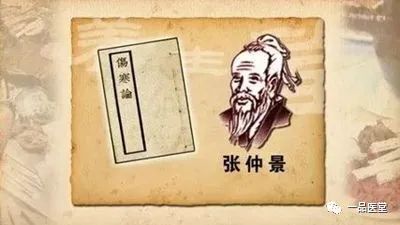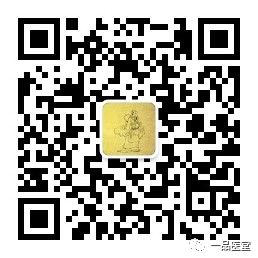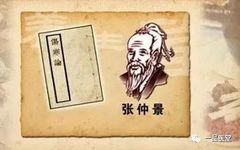
Gui Zhi Fu Ling Wan (Cinnamon Twig and Poria Pill)
【Ingredients】Gui Zhi (Cinnamon Twig) 10g, Fu Ling (Poria) 15g, Tao Ren (Peach Kernel) 10g, Shao Yao (Peony) 10g, Dan Pi (Moutan Root) 10g
【Formula Explanation】This formula is derived from Gui Zhi Tang (Cinnamon Twig Decoction) with the addition of Fu Ling, Tao Ren, and Dan Pi. Gui Zhi and Fu Ling calm the Qi and treat palpitations. Tao Ren, Dan Pi, and Shao Yao dispel blood stasis and treat abdominal fullness and pain, thus addressing blood stasis syndrome, Qi counterflow, and abdominal fullness with palpitations. For cases of Qi counterflow, nausea, and palpitations above the navel, Gui Zhi is often used (for palpitations below the navel, Fu Ling is used) to release the exterior and descend the counterflow.
【Differential Diagnosis Key Points】: Chronic blood stasis, fixed abdominal pain, hypochondriac pain, presence of masses, or blood in the stool.
This formula can treat women’s gynecological bleeding disorders, and is applicable to both genders for bleeding due to blood stasis, or chest and abdominal pain caused by blood stasis with fixed pain. It is not suitable for those with abdominal pain who require purgation with Tao Ren Cheng Qi Tang. Clinically, this formula can be used to treat cardiovascular diseases presenting with Qi counterflow, palpitations, and chest pain, often combined with Da Chai Hu Tang (Major Bupleurum Decoction), which contains Zhi Shi (Bitter Orange), Gui Zhi, and Sheng Jiang (Fresh Ginger) for effective pain relief. For hypertension, add Shi Gao (Gypsum). Shi Gao combined with Da Huang (Rhubarb) can lower blood pressure.
【Meridian Affinity】Gui Zhi and Fu Ling treat external pathogens and internal phlegm causing Qi counterflow and palpitations, while Shao Yao, Dan Pi, and Tao Ren cool the blood and dispel stasis to treat abdominal fullness and pain. Therefore, this formula is associated with the Tai Yang, Yang Ming, and Tai Yin syndromes.
Xia Yu Xue Tang (Blood-Draining Decoction)
【Ingredients】Da Huang (Rhubarb) 15g, Tao Ren (Peach Kernel) 10g, Zhe Chong (Scolopendra, remove legs) 6g, wrapped in cloth and decocted
【Formula Explanation】Zhe Chong is salty and cold, as stated in the “Classic of Materia Medica”: “Blood accumulation, masses, breaking hardness, and draining blood clots.” It is a powerful blood-stasis dispelling herb, and combined with Tao Ren and Da Huang, it treats stubborn blood-stasis abdominal pain with constipation.
【Differential Diagnosis Key Points】: Lower abdominal pain, hardness, and dry stools. Abdominal pain is located below the navel and is very sensitive, to the point that one cannot touch it.
【Meridian Affinity】Yang Ming syndrome
Tao Ren Cheng Qi Tang (Peach Kernel Decoction)
【Ingredients】Tao Ren (Peach Kernel) 10g, Mang Xiao (Glauber’s Salt) 3-6g, Da Huang (Rhubarb) 12g, Gui Zhi (Cinnamon Twig) 6g, Gan Cao (Licorice) 6g
【Formula Explanation】This formula is an adjustment of the Cheng Qi Tang (Purgative Decoction) with the addition of blood-stasis dispelling Tao Ren and the Qi descending Gui Zhi.
Mr. Hu Xishu noted that “Cheng Qi Tang attacks internal heat, and the addition of Tao Ren dispels blood stasis, while Gui Zhi descends the foul Qi of counterflow. The counterflow of Qi indicates that the exterior has not been resolved, hence Gui Zhi and Gan Cao are used for treatment, thus this formula corresponds to the stomach, Tai Yang, and Yang Ming syndromes.”
【Differential Diagnosis Key Points】: The symptoms of Cheng Qi Tang include fixed abdominal pain and Qi counterflow.
Heat and blood stasis in the bladder can lead to symptoms of madness. Clinically, it is often combined with Da Chai Hu Tang to treat mental disorders.
【Meridian Affinity】Tai Yang and Yang Ming syndromes.
Di Dang Tang (Di Dang Pill)
【Ingredients】Shui Zhi (Leech) 6g, Zhe Chong (Scolopendra) 6g, Da Huang (Rhubarb) 10g, Tao Ren (Peach Kernel) 10g
【Formula Explanation】Shui Zhi and Zhe Chong are both anticoagulant blood-stasis dispelling herbs, combined with Tao Ren and Da Huang to treat stubborn blood stasis with constipation.
【Differential Diagnosis Key Points】: Lower abdominal hardness, slight urination, or symptoms of forgetfulness or agitation.
Heat and blood stasis in the lower jiao, with lower abdominal hardness and slight urination. This syndrome is often acute and severe, presenting with jaundice, fever, menstrual irregularities, and is often seen in mental illnesses, where the person may exhibit madness or forgetfulness, which are key symptoms of blood stasis. The “Inner Canon” states: “When blood accumulates in the lower, it becomes chaotic and leads to forgetfulness.” Chronic blood stasis develops gradually, leading to forgetfulness; acute blood stasis appears suddenly, causing madness. For acute cases, purgation is appropriate, while for chronic cases, Di Dang Tang is used. Treatment of mental disorders such as epilepsy with blood-stasis dispelling methods is also effective. It can also be used for purpura of the excess heat type.
In the “Treatise on Cold Damage” 237: Yang Ming syndrome, if a person forgets, there must be stored blood. This is because there is chronic blood stasis, leading to forgetfulness. Even if the stool is hard, the bowel movement is easy, and the color must be black, Di Dang Tang should be used.
【Meridian Affinity】Yang Ming syndrome
Da Huang Mu Dan Pi Tang (Rhubarb and Moutan Root Decoction)
【Ingredients】Da Huang (Rhubarb) 12g, Tao Ren (Peach Kernel) 10g, Mu Dan Pi (Moutan Root) 15g, Dong Gua Zi (Winter Melon Seed) 10g
【Formula Explanation】Da Huang and Mang Xiao are combined with blood-stasis dispelling Tao Ren and Mu Dan Pi, along with Dong Gua Zi, which is particularly effective for treating abscesses and swellings, addressing internal excess with blood stasis or abscesses.
【Differential Diagnosis Key Points】: Right abdominal tenderness, internal excess heat syndrome, acute appendicitis. Pulse is slow and tight, with no pus formation; Pulse is rapid and surging with pus formation. This formula is often combined with Da Chai Hu Tang.
【Meridian Affinity】Yang Ming syndrome
Da Huang Zhe Chong Wan (Rhubarb and Scolopendra Pill)
【Ingredients】Da Huang (Rhubarb, steamed) 10g, Huang Qin (Scutellaria) 20g, Gan Cao (Licorice) 30g, Tao Ren (Peach Kernel) 1 sheng, Xing Ren (Apricot Kernel) 1 sheng, Shao Yao (Peony) 40g, Gan Di Huang (Rehmannia) 100g, Gan Qi (Dried Lacquer) 10g, Zhe Chong (Scolopendra) 1 sheng, Shui Zhi (Leech) 100 pieces, and Chan Toad 1 sheng.
【Formula Explanation】This formula combines four insects, Gan Qi, and Tao Ren, with Da Huang used in a small amount and steamed, combined with Shao Yao, Huang Qin, Gan Cao, and Xing Ren to moisten dryness. It is particularly effective for treating dry blood consumption.
【Differential Diagnosis Key Points】: Symptoms of extreme deficiency, with dark complexion, stasis spots, and skin roughness.
Five labor deficiency diseases lead to emaciation and abdominal fullness, with inability to eat, caused by various factors. If food injury, worry, drink, sexual activity, hunger, or labor injuries all damage the meridians and Qi, leading to blood stasis, skin roughness, and dark complexion, this is the manifestation. Blood stasis must be removed, but if the deficiency is extreme, aggressive purgation is not advisable; instead, one must tonify and nourish. Da Huang Zhe Chong Wan is the main treatment.
【Meridian Affinity】Yang Ming syndrome
Dang Gui Shao Yao San (Angelica and Peony Powder)
【Ingredients】Dang Gui (Angelica) 10g, Chuan Xiong (Chuanxiong) 10g, Shao Yao (Peony) 24g, Fu Ling (Poria) 12g, Bai Zhu (Atractylodes) 12g, Ze Xie (Alisma) 10g
【Formula Explanation】Shao Yao is the main ingredient to alleviate urgent abdominal pain, while Dang Gui and Chuan Xiong are warming and nourishing blood, dispelling stasis and regulating menstruation. Fu Ling, Bai Zhu, and Ze Xie promote urination and eliminate water retention, thus treating urgent abdominal pain due to blood deficiency and stasis, or water retention symptoms such as dizziness, palpitations, or difficulty urinating.
【Differential Diagnosis Key Points】: Abdominal pain with tension, dizziness, palpitations, and difficulty urinating.
This formula’s main herb is Shao Yao, combined with Dang Gui and Chuan Xiong to treat blood-stasis abdominal pain. The large amounts of Bai Zhu, Fu Ling, and Ze Xie in this formula should help with dizziness, palpitations, and difficulty urinating.
Blood deficiency can lead to cold extremities, and in clinical practice, Dang Gui Shao Yao San can also be used for numbness in the limbs; Huang Qi Gui Zhi Wu Wu Tang can treat exterior deficiency with pathogens not resolved, using Huang Qi to solidify the exterior. If there is also blood stasis or water toxicity, adding Dang Gui Shao Yao San will definitely enhance the efficacy. This formula activates blood, dispels stasis, alleviates urgency, and is often used to treat hepatitis with blood deficiency.
Distinguishing: There are two types of obstruction: one with abdominal pain and blood in the stool, requiring hemostasis with Qiong Gui Jiao Ai Tang; the other with abdominal pain without blood, which does not require hemostasis, is treated with Dang Gui Shao Yao San.
【Meridian Affinity】Shao Yao is slightly cold, primarily nourishing blood, while Ze Xie is sweet and cold, promoting fluid metabolism. The other herbs primarily warm and nourish blood and promote fluid metabolism. This formula corresponds to the Tai Yin syndrome.
Dang Gui San (Angelica Powder)
【Ingredients】Dang Gui (Angelica) 10g, Bai Shao (White Peony) 10g, Chuan Xiong (Chuanxiong) 10g, Bai Zhu (Atractylodes) 10g, Huang Qin (Scutellaria) 9g
【Formula Explanation】This formula is a modification of Dang Gui Shao Yao San, removing Fu Ling and Ze Xie, reducing Bai Zhu and Shao Yao, and adding Huang Qin, thus used to treat lighter abdominal pain without water retention or with slight heat.
【Differential Diagnosis Key Points】: Dang Gui Shao Yao San syndrome with lighter abdominal pain, often seen in pregnancy with blood deficiency and heat.
【Meridian Affinity】Tai Yin and Shao Yang syndromes
Jiao Ai Tang (Ass-Hide Gel and Mugwort Decoction)
【Ingredients】Sheng Di Huang (Raw Rehmannia) 30g, Chuan Xiong (Chuanxiong) 10g, Dang Gui (Angelica) 10g, Bai Shao (White Peony) 10g, E Jiao (Ass-Hide Gel) 10g, Ai Ye (Mugwort) 10g, Zhi Gan Cao (Honey-fried Licorice) 6g, and 3 sheng of wine.
【Formula Explanation】Sheng Di Huang, E Jiao, and Ai Ye work together to stop bleeding, while Dang Gui, Chuan Xiong, Shao Yao, and Gan Cao regulate the blood vessels to treat abdominal pain. This formula is used for internal deficiency and blood deficiency, or loss of blood syndrome with abdominal pain and symptoms of blood loss.
Jiao Ai Tang is a modification of Si Wu Tang (Four Substance Decoction) with the addition of E Jiao, Ai Ye, and Gan Cao. Modern interpretations suggest that Si Wu Tang nourishes blood, but this formula excels at dispelling stasis and is a strong blood-stasis dispelling agent, beneficial for deficiency syndromes but not for excess syndromes. The formula contains Shao Yao and Sheng Di Huang, which are slightly cold. The “Classic of Materia Medica” states that Shao Yao treats blood stasis, meaning blood blockage causes pain. Sheng Di Huang is a strong cold nourishing and blood-stasis dispelling herb, which can relieve restlessness and stop bleeding. The two herbs are beneficial for deficient heat pulses but not for deficient cold; Dang Gui and Chuan Xiong are warming blood-stasis dispelling herbs, with Dang Gui having strong nourishing and pain-relieving properties, while Chuan Xiong is warm and strong in dispelling stasis and evil. The combination of cold and warm herbs harmonizes to create a strong blood-stasis dispelling and hemostatic effect.
【Differential Diagnosis Key Points】: All loss of blood syndromes with abdominal pain;
This formula can be used for both men and women with blood deficiency and abdominal pain. Chuan Xiong, Dang Gui, Sheng Di Huang, and Shao Yao are all well-known blood-nourishing herbs. Shao Yao dispels blood stasis and is the main herb for abdominal pain, while Dang Gui and Chuan Xiong are strong blood-stasis dispelling herbs. Chuan Xiong and Dang Gui are warming and suitable for deficient cold, while Sheng Di Huang is cold and suitable for deficient heat. To nourish deficiency and relieve pain, Chuan Xiong is not as effective as Dang Gui, while for dispelling stasis and relieving stagnation, Dang Gui is not as effective as Chuan Xiong. Sheng Di Huang can relieve restlessness and has a special ability to stop bleeding. For habitual miscarriage patients, this formula is beneficial, especially if there is some bleeding during pregnancy. It can be used for symptoms ranging from light bleeding to severe bleeding during pregnancy. If the deficiency is severe, it is often combined with Si Jun Zi Tang (Four Gentlemen Decoction) to help stabilize the fetus.
【Meridian Affinity】Shao Yao, Sheng Di Huang, and E Jiao are primarily associated with Yang Ming; Chuan Xiong, Gan Cao, Dang Gui, wine, and Ai Ye are associated with Tai Yin, thus this formula corresponds to the Yang Ming and Tai Yin syndromes.
Chi Xiao Dou Dang Gui San (Adzuki Bean and Angelica Powder)
【Ingredients】Chi Xiao Dou (Adzuki Bean) 30g, Dang Gui (Angelica) 10g
【Formula Explanation】Chi Xiao Dou is sweet, sour, and neutral; as stated in the “Classic of Materia Medica”, it treats abscesses, swellings, and purulent blood. Dang Gui is sweet and warm; it nourishes blood and dispels stasis, treating various sores with pus and blood.
【Differential Diagnosis Key Points】: All sores with pus and blood.
This formula can also promote urination, activate blood, and expel pus and toxins, thus treating not only anal diseases but also urinary system diseases and skin diseases.
【Meridian Affinity】Tai Yin syndrome
Wen Jing Tang (Warm the Meridians Decoction)
【Ingredients】Wu Zhu Yu (Evodia) 9g, Dang Gui (Angelica), Chuan Xiong (Chuanxiong), Shao Yao (Peony), Ren Shen (Ginseng), Gui Zhi (Cinnamon Twig), E Jiao (Ass-Hide Gel), Dan Pi (Moutan Root), Sheng Jiang (Fresh Ginger), Gan Cao (Licorice) each 6g, Ban Xia (Pinellia) 10g, Mai Dong (Ophiopogon) 18g
【Formula Explanation】Wu Zhu Yu Tang removes the jujube and adds Gui Zhi to descend counterflow and stop vomiting to warm the stomach and drive out cold. Additionally, Mai Dong Tang removes the jujube and adds polished rice to nourish and moisten dryness to replenish the stomach’s deficiency. Shao Yao, E Jiao, Dan Pi, and Mai Dong cool the blood and clear heat, while Gui Zhi and Sheng Jiang expel evil externally. Therefore, this formula clears heat above and warms cold below, suitable for treating half-exterior, half-interior Yin syndromes.
【Differential Diagnosis Key Points】: This formula corresponds to the syndromes of Xiong Gui Jiao Tang, Dang Gui Shao Yao San, Wu Zhu Yu Tang, Gui Zhi Fu Ling Wan, and Mai Dong Tang.
【Meridian Affinity】Jue Yin syndrome
Huang Tu Tang (Yellow Earth Decoction)
【Ingredients】Gan Cao (Licorice), Sheng Di Huang (Raw Rehmannia), Bai Zhu (Atractylodes), Fu Zi (Aconite), E Jiao (Ass-Hide Gel), Huang Qin (Scutellaria) each 9g, and Zao Xin Tu (Red Clay) 30g
【Formula Explanation】Zao Xin Tu (or red clay) is a warming and astringent herb with hemostatic properties, combined with Sheng Di Huang and E Jiao to nourish blood and clear heat, working together to stop bleeding, assisted by Gan Cao and Bai Zhu to regulate and dry dampness. Fu Zi provides great warmth, while Huang Qin, being bitter and cold, treats the mixed symptoms of blood loss with Yin and Yang cold and heat.
【Differential Diagnosis Key Points】: Black, purple blood in the stool, with cold limbs and a feeling of heat.
Using herbs to diagnose: Sheng Di Huang and E Jiao both nourish deficiency, indicating symptoms of fatigue, pale complexion, and extreme deficiency anemia; Fu Zi may indicate cold limbs, cold pulse, and other symptoms of Yin cold. When combined with Bai Zhu, it may indicate water retention or slight diarrhea. When combined with Sheng Di Huang, it may indicate numbness or tingling. The combination of Sheng Di Huang and Huang Qin treats heat and restlessness, especially in the limbs.
【Meridian Affinity】Jue Yin syndrome

Clinical Applications of Sheng Jiang San
Rou Gui (Cinnamon) guides fire back to its source

